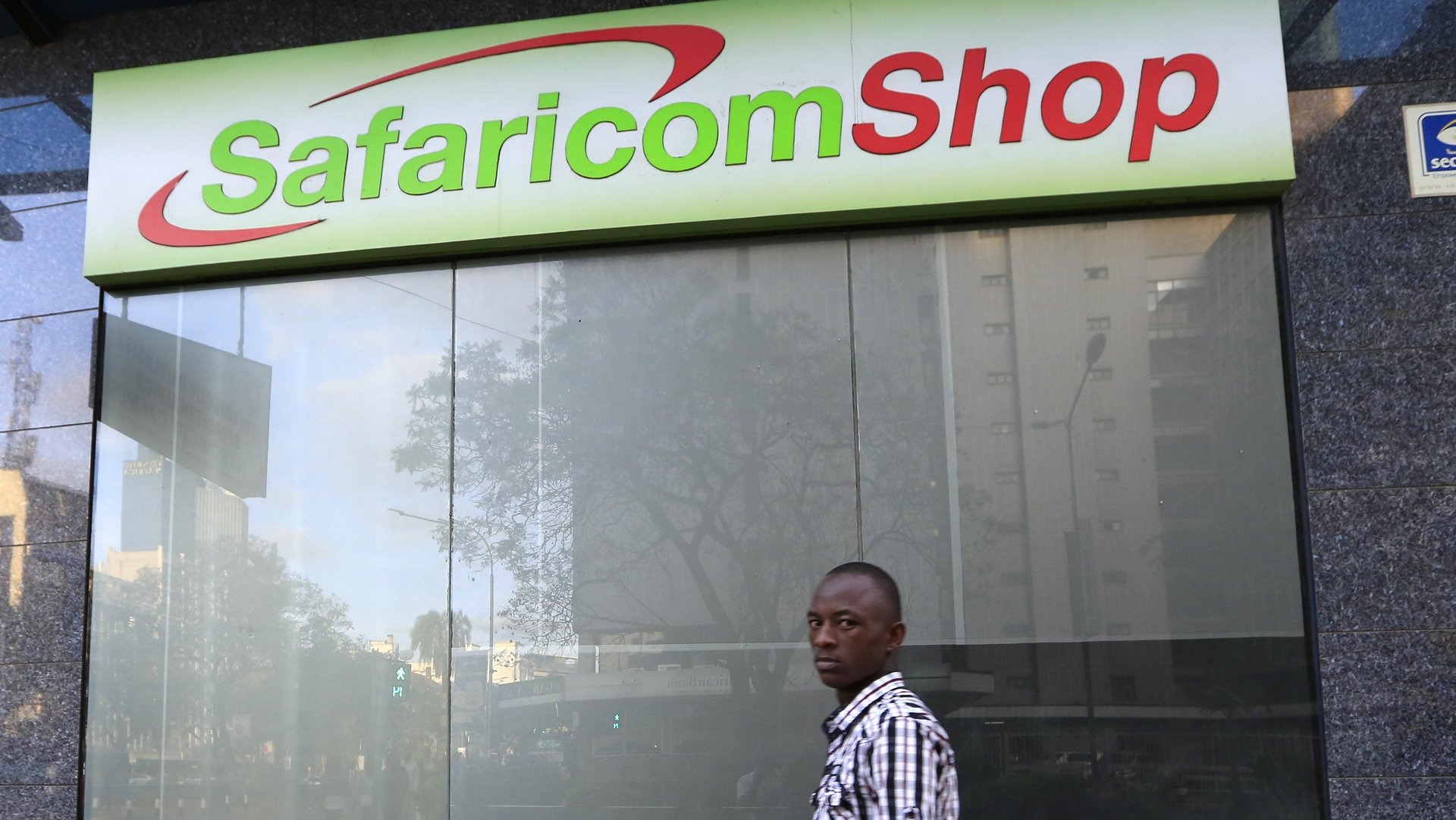Safaricom is planning to expand M-Pesa mobile money across Africa
Safaricom is planning to take its successful mobile money service M-Pesa across Africa after building a dominant home base in Kenya and presence in its East African neighbors.


Safaricom is planning to take its successful mobile money service M-Pesa across Africa after building a dominant home base in Kenya and presence in its East African neighbors.
The news came after UK’s Vodafone Group transferred its 35% stake in Safaricom to its South African subsidiary, Vodacom. Subject to shareholder and regulatory approvals, the proposed transaction will cost Vodacom 34.6 billion rand ($2.6 billion) in exchange for the stake.
Safaricom, Kenya’s largest telecommunication company, said it gave “appropriate assurances” to the government of Kenya—which owns a 35% share in the company—about the deal. Vodafone will also retain a 5% stake in Safaricom, while 25% of the shares are on a free float being traded in the stock market.
Aly-Khan Satchu, a financial analyst based in Nairobi, says that the deal would be lucrative for both companies and help “consolidate” their reach across Africa in new markets such as Ethiopia, Africa’s second largest country by population. “I think by consolidating the African businesses, you could apply scale and target these markets to make a wider opening to Vodacom and Safaricom.”
Vodacom says the proposed deal gives it access to a market with “high growth, high margin, high cash generation business.” Shameel Joosub, the Vodacom Group’s chief executive, said the stake will drive M-Pesa adoption across its business.
M-Pesa is a huge cash cow for Safaricom. Since it launched in 2007, the service has grown to serve more than 29 million people in and out of Kenya. The platform allows users in 10 countries in Africa, Asia, and Europe to send and receive money, pay bills, and access loans. Last week, the company announced a 70.4 billion Kenyan shillings pre-tax profit largely boosted by the growth of mobile money services. M-Pesa revenue grew by 32.7% to 55 billion Kenyan shillings ($567 million) for the year ending March 2017. More than 3 million Kenyans also joined the platform, increasing its registered users to 26.57 million.
Yet the rise of M-Pesa in particular has also raised questions on whether Safaricom’s market dominance is anti-competitive. A leaked report from earlier this year, commissioned by the Communications Authority of Kenya, suggested M-Pesa should be separated from its voice and data services. Given the billions of dollars that run through M-Pesa annually, Kenyan treasury officials have also expressed their concern about the platform, noting that it could be a “plausible fiscal risk.”
But the Safaricom has also been softening its position, allowing its agents to host other services beyond M-Pesa, and rooting for an agreement to allow cross-network mobile transfer systems.
Satchu says the shareholding belongs better with Vodacom than with Vodafone in the UK from a corporate perspective. “It makes sense to try and get some of the acceleration that we have seen in Safaricom complemented to Vodacom South Africa.”
If Vodacom goes more pan-African it will be going head-to-head with larger South African rival, MTN in several countries. At one point in 2016, Vodacom overtook MTN as Africa’s most valuable telecom operator. The two companies have also faced a legal tussle over a non-compete clause after MTN poached its new CEO from Vodacom last year.